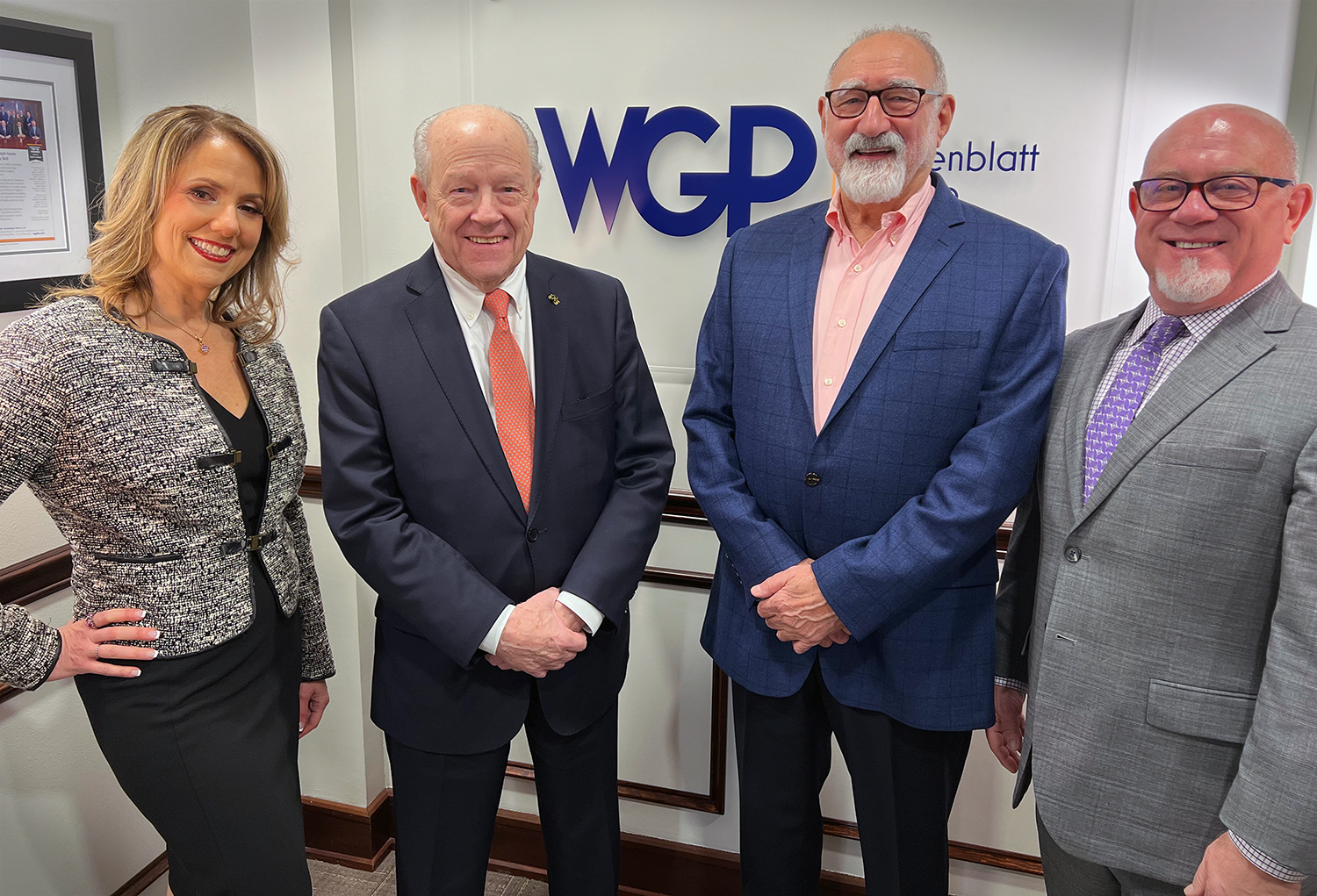The Bar Exam — Does it Pass the Test?
By: alan-yatvin
July 27, 1983, Somewhere in New Jersey. I am aboard Amtrak’s Garden State Special from Philadelphia to New York. A few hours ago I completed the two‑day culmination of the worst eight weeks of my life — the Bar Exam. Some of today’s questions are still floating around in my mind but, surprisingly, only a few. Veterans of the experience tell me that by tomorrow virtually all the assorted rules of law will leave me, as though written in disappearing ink. What really occupies me now, though, is not the law or the questions, but the process. Over the last eight weeks I have gone through an unpleasant, dehumanizing experience ‑- with no apparent benefit. There was a time when law school and clerkships prepared one to sit for the Bar. Nowadays, candidates prepare for the semi‑annual ordeal with expensive Bar review courses starting about two months in advance of the exam. The sole purpose of these courses is to help candidates pass the Bar Exam. Any law picked up along the way is purely incidental, accidental, and transcendental. To get us through, the courses provide grossly over‑simplified rules, mnemonics, and bizarre, yet memorable illustrations. They also give examinees a peek inside the Bar examiners’ heads by revealing past methods and tricks. Questions from the essay half of the exam are routinely released by each state’s examiners. However, for the most part, the 200 questions from the Multi‑state portion are kept secret by the Princeton‑based Educational Testing Service which administers the multiple‑choice part of the exam in 44 states. The review courses manage to get around this secrecy, though. They “de‑program” examinees after each test. As a result, reviewers are able to reveal the tricks, the “always wrong’ answers, the red herrings, and even the distribution of sub‑topics within the general areas tested. The review instructors acknowledge that the Bar is nothing more than the final hazing before induction into the fraternity. A pre‑exam “Good Luck” letter from the New York offices of the nation’s largest review course characterized the New York Bar Exam as “an endurance test … designed to shake you up, to gauge how you react under the gun.” If this sort of activity is what it takes to pass the Bar Exam, what good is it? Tricks, short‑term memory enhancers, and refined test‑taking skills do not bestow any benefit on the legal profession. This should not be taken as condemnation of the review courses. The Bar Examiners invite this activity when they require candidates to jump through meaningless hoops. Their testing behavior makes the examiners fair game, and the use of anything short of cheating is legitimate in the battle for Bar survival. Even if most of what is learned in preparation for the Bar were not soon forgotten, little is the sort of law which will be useful in practice. Renowned trial lawyer Irving Younger prefaced a lecture on the New York statutes of limitations by pointing out that, in real legal practice, failure to verify these statutes would be grounds for disbarment. Then to what end do we commit to memory ever‑changing details which always must be looked up or researched in the course of the actual practice of law? Its supporters would also be hard pressed to justify the Bar as a grand final exam for law school. Law schools teach the law in terms of philosophy, theory and broad‑based rules. Law professors shun that which they refer to as “black letter law” — precisely what the Bar tests. Anyone. can look up cases and statutes, they say. The important thing is to be able to think like a lawyer. Twenty years ago the Bar was an essay exam demanding wide‑ranging analysis. Today, half the exam is multiple choice — a testing style which punishes innovative thought. Even the modern essays are closer to multiple choice questions than to the type of essays expected in law school. Any law student who wrote an essay consisting solely of the issue, the applicable rule of law, a brief discussion applying the rule to the facts, and the outcome of the suit, would be lucky to garner a ‘C’ from a law professor. But on the Bar, this is the formula for full credit. Nonetheless, perhaps all this senseless tail‑chasing could somehow be excused if it were not for the toll the Bar takes of its candidates. The Bar transforms competent, intelligent, self‑assured students into frenzied rats, desperately trying to wend their way through a mental maze. In the past eight weeks, I have seen all manner of neurotic behavior fostered by the Bar: some reacted by going on eating binges, while others lost their appetites; many also became insomniacs — a condition the incidence of which increased geometrically as B‑Day approached. A once‑happy law student couple found themselves forced to study apart and avoid any discussion of the law because his compulsiveness dramatically increased her natural nervousness. Normally efficient people suddenly became unable to study effectively. Sometimes the condition even blossomed into intellectual paralysis. And, if my circle of friends is representative, chiropractors and ophthalmologists across the country are due for an early August business boom. Lest we be lulled into thinking that the misery ended with the handing‑in of our test papers, the Bar examiners have arranged for our purgatory to continue. For most of us, the results will not be out until sometime after Thanksgiving. The impact of this long wait is hard on everyone, but particularly so on those who do not yet have a job. For the next four months the already tight legal job market is virtually closed to anyone not already admitted. Employers who have waited this long generally find it to their advantage to wait just a it longer in order to hire a known quantity. From the employer’s point of view this is quite a logical approach. An unadmitted attorney is not permitted to perform many of the functions an employer might desire, and if the candidate fails the Bar, the period of incapacity will be extended by at least another six months. Additionally, the new employee’s services will be lost during the study period for the next exam. Another problem with this seemingly endless wait is that many public sector employers will not even consider candidates before admission to the Bar. Consequently, a person headed for a large firm frequently has secured a position in November of the third year of law school, while a class‑mate hoping for employment as a public defender in Baltimore or Phoenix will not hear until more than a year later. This disparity flows both from the timing of release of Bar results and the constraints limited resources place on most public sector employers. There is some hope on the horizon, though. This year California is experimenting with a new component to its Bar Exam. In addition to the traditional local essays and the Multi‑state section, California candidates will sit for a third day. The exam on this day consists of writing a research memorandum using a packet of pre‑selected cases and statutes. The student must read and analyze the actual law, then apply it to a factual situation. This format comes closest to anything yet proposed in truly testing that which lawyers do. If Voltaire [or Leibniz?] were writing the Bar Exam, the Best of All Possible Bar Exams might consist of a memorandum similar to the California experiment and a more law school‑like variation on the local essays. This second part would serve the purpose of testing knowledge of local law, but in a way that would reward creativity and in‑depth analysis. The format would demand less in the way of formal structure and test fewer issues, allowing more time to delve into a question. Actually, the best of all possible worlds already exists. Wisconsin is one of the few remaining states which grants admission to its Bar upon receipt of a degree from one of its two law schools. Even though there is this automatic admission, Wisconsin has not emasculated the curriculum of its law schools by turning them into three‑year local law Bar review courses. Both Wisconsin’s institutions are what are known as “national” law schools. This means they do not focus on local or “black letter” law. Rather, they teach an over view of legal thought and development, much like Harvard or Yale. Thus, the Wisconsin graduate’s education does not suffer as a result of the degree admission policy. In fact, other states Wisconsin attorneys like those admitted anywhere else — by granting admission to their Bar upon application after five years of practice. The only logical conclusion to be drawn is that the Bar Exam is superfluous, and everyone knows it. Nonetheless, the powers that be continue to trivialize the profession by imposing this needless little initiation rite. As we pull into Penn Station, two thoughts are upper‑most in my mind. One, I am not going to forget this indignity. Someday I will do my part to rehumanize the process of becoming a lawyer. And two, I sure am glad I did not opt to take two Bars, otherwise I would be facing the New Jersey essays in twelve hours!
Postscript: In October of 1983 I got a letter that I had passed the Pennsylvania Bar. Indeed, I benefitted from Pennsylvania’s — to my mind — illogical rule that a high enough score on the Multi-state portion resulted in passage without even considering the essays. On some level I was disappointed that my brilliant essays ended up falling in the forest without making a sound. Also, despite my commitment, I have not done anything to change the Bar exam, although in my teaching of trial advocacy to law students and in presenting continuing legal education courses, I hope I have contributed to that promised humanization.






